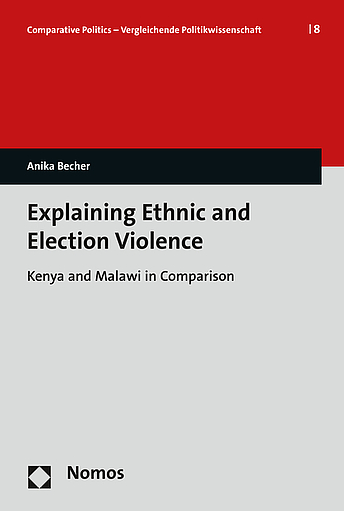englischWhy are some elections violent but not others? Why does ethnic violence occur in some countries but not in others? And how can we explain that some areas and some constituencies are affected by violence, while others remain peaceful? In order to answer these questions, Anika Becher compiled a new data set on ethnic and electoral violence in two African countries for a time span of 20 years. Based on her data, the author shows when and where violence has erupted in Kenya and Malawi since the reintroduction of multiparty elections and studies how differences both between and within the countries can be explained.
The author shows that the prevailing explanations for civil war are not sufficient to understand ethnic and electoral violence and that both – while often closely interlinked – have different causes. Large parts of the violence are committed by actors close to the government, which restricts political competition.
Warum verlaufen manche Wahlen gewaltsam und andere nicht? Warum bricht in manchen Ländern Gewalt zwischen ethnischen Gruppen aus und in anderen nicht? Und wie kann erklärt werden, dass nur manche Gebiete und manche Wahlkreise von Gewalt betroffen sind, während andere friedlich bleiben? Um diese Fragen zu beantworten, erfasst Anika Becher Gewalt anlässlich von Wahlen sowie ethnische Gewalt für zwei afrikanische Staaten über 20 Jahre hinweg. Anhand ihrer Daten zeigt die Autorin, wann und wo in Kenia und Malawi seit der Wiedereinführung von Mehrparteienwahlen Gewalt ausbrach, und untersucht, wie die Unterschiede zwischen den Ländern, aber auch innerhalb der Länder erklärt werden können.
Sie zeigt, dass vorherrschende Erklärungsansätze für Bürgerkrieg nicht ausreichen, um ethnische und Wahlgewalt zu erklären, und dass beide – obwohl oft eng verknüpft – unterschiedliche Ursachen haben. Ein Großteil der Gewalt geht von regierungsnahen Akteuren aus und schränkt den politischen Wettbewerb ein.


